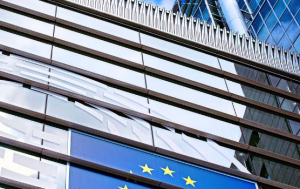
After more than 40 years of operation, DTVE is closing its doors and our website will no longer be updated daily. Thank you for all of your support.
European parliament committee approves controversial copyright reform
 The European Parliament’s legal affairs committee this week approved controversial plans for copyright reform that have attracted substantial criticism from media industry groups.
The European Parliament’s legal affairs committee this week approved controversial plans for copyright reform that have attracted substantial criticism from media industry groups.
MEPs on the committee voted for the controversial article 13 provision that will require internet platforms such as Google and Facebook to prevent users from uploading copyrighted material, and for article 11, which enables publishers to force internet platforms to pay them for showing news content.
The measures had attracted widespread criticism ahead of the vote. On June 12 a group of 70 leading figures from the internet world, including world wide web creator Tim Berners-Lee and Wikipedia founder Jimmy Wales, wrote an open letter to European parliament president Antonio Tajani urging a rethink.
The authors of the letter said that while the copyright reform’s article 13 was “well-intended”, it effectively meant lawmakers were taking “an unprecedented step towards the transformation of the Internet from an open platform for sharing and innovation, into a tool for the automated surveillance and control of its users”.
The letter said that Europe had been well-served by its existing “balanced liability” model under the e-commerce directive, placing the onus of responsibility on those who upload content ,while placing a duty to remove infringing content on platforms. It said th burded would fall most heavily on competitors to the big US internet giants rather than on companies that could afford to the costs of compliance.
The vote this week was also criticized by public broadcasters organsiation the EBU, which said that the parliament had “failed to strike a reasonable balance between providing transparency and information to authors and performers while, at the same time, ensuring the workability and pragmatism to do so” by requiring publishers “to automatically report to all authors and performers on the use of the works they contributed to will place unprecedented burden on the creative industries, at a time when they are already facing significant market disruption”.
The EBU said it was particularly concerned by the introduction of a new right of revocation, enabling one actor to block a programme from being shown again, which it said was “clearly disproportionate”.
The parliamentary committee approved its position by 14 votes to nine with two abstentions and adopted by by the same majority a decision to enter into negotiations with the European Council,
The parliament said that the reform would enable news publishers and artists to be properly paid for limiting elements of a news article news aggregators can share without needing to pay the rightsholder a licence fee and by requiring content sharing platforms either to pay fees to rightsholders whose content is uploaded or to ensure that an upload containing copyrighted material is blocked.
The parliament also said that measures put in place by platforms should be designed so as not to catch out non-infringing works while at the same providing easy redress if content is wrongly taken down.
The proposals are also designed to strengthen the hand of authors and performers by enabling them to claim additional remuneration if the remuneration originally agreed is disproportionately low compared with the benefits from exploiting the work.
“This vote marks the first step of the parliamentary procedure to adopt copyright laws fit to meet the challenges of the internet. The last laws to address copyright in the information society date back 17 years and the internet of today is fundamentally different to what it was in 2001,” said EU rapporteur Axel Voss.
“Creators and news publishers must adapt to the new world of the internet as it works today. There are opportunities but there are also important drawbacks. Notably, news publishers and artists, especially the smaller ones, are not getting paid due to the practices of powerful online content-sharing platforms and news aggregators. This is wrong and we aim to redress it. The principle of fair pay for work done should apply to everyone, everywhere, whether in the physical or online world. The committee position aims to ensure that widely recognised and observed copyright principles apply to the online world, too. A world which certainly must remain a champion of freedom of expression, but in which our rules-based society should also be reflected.”


